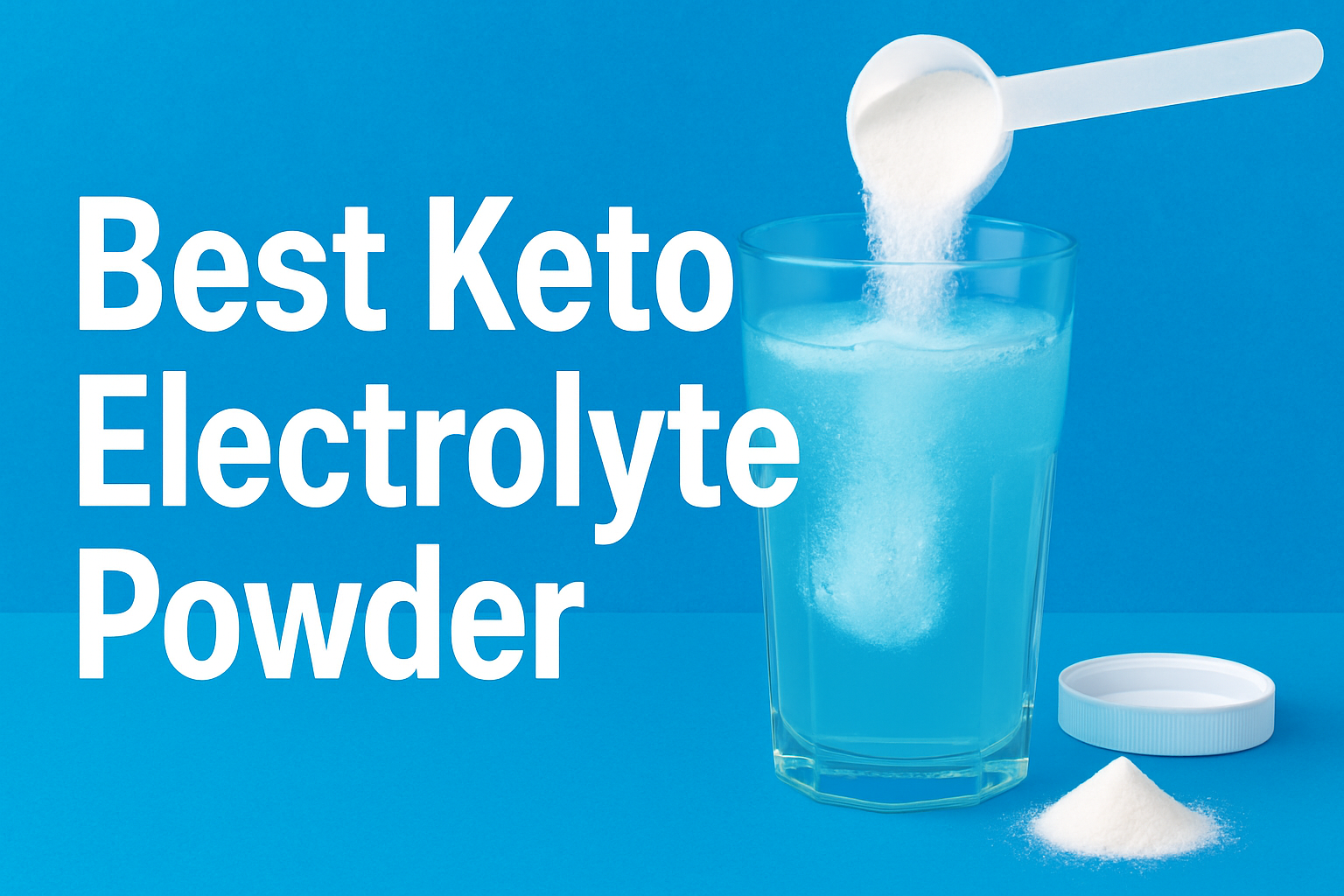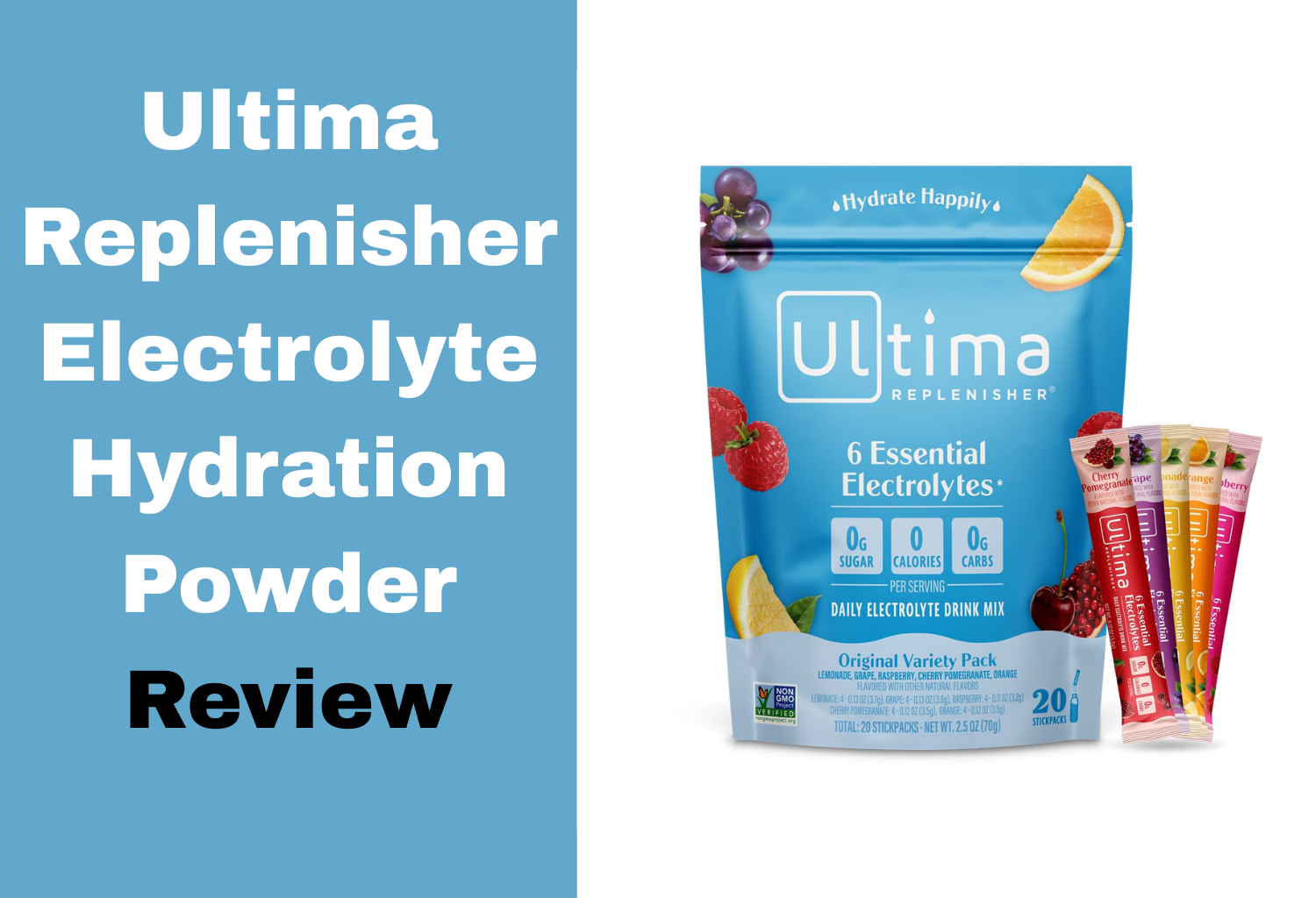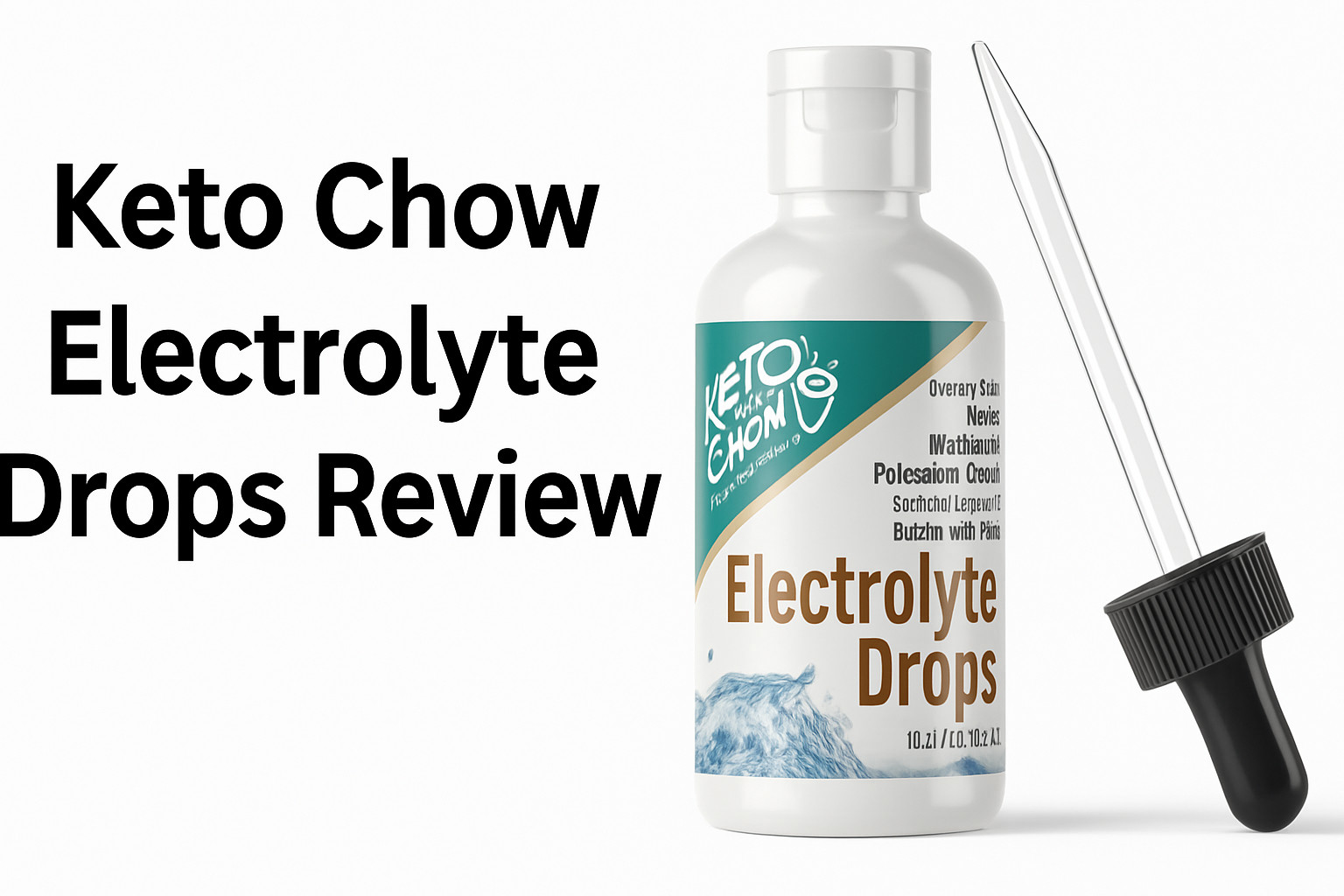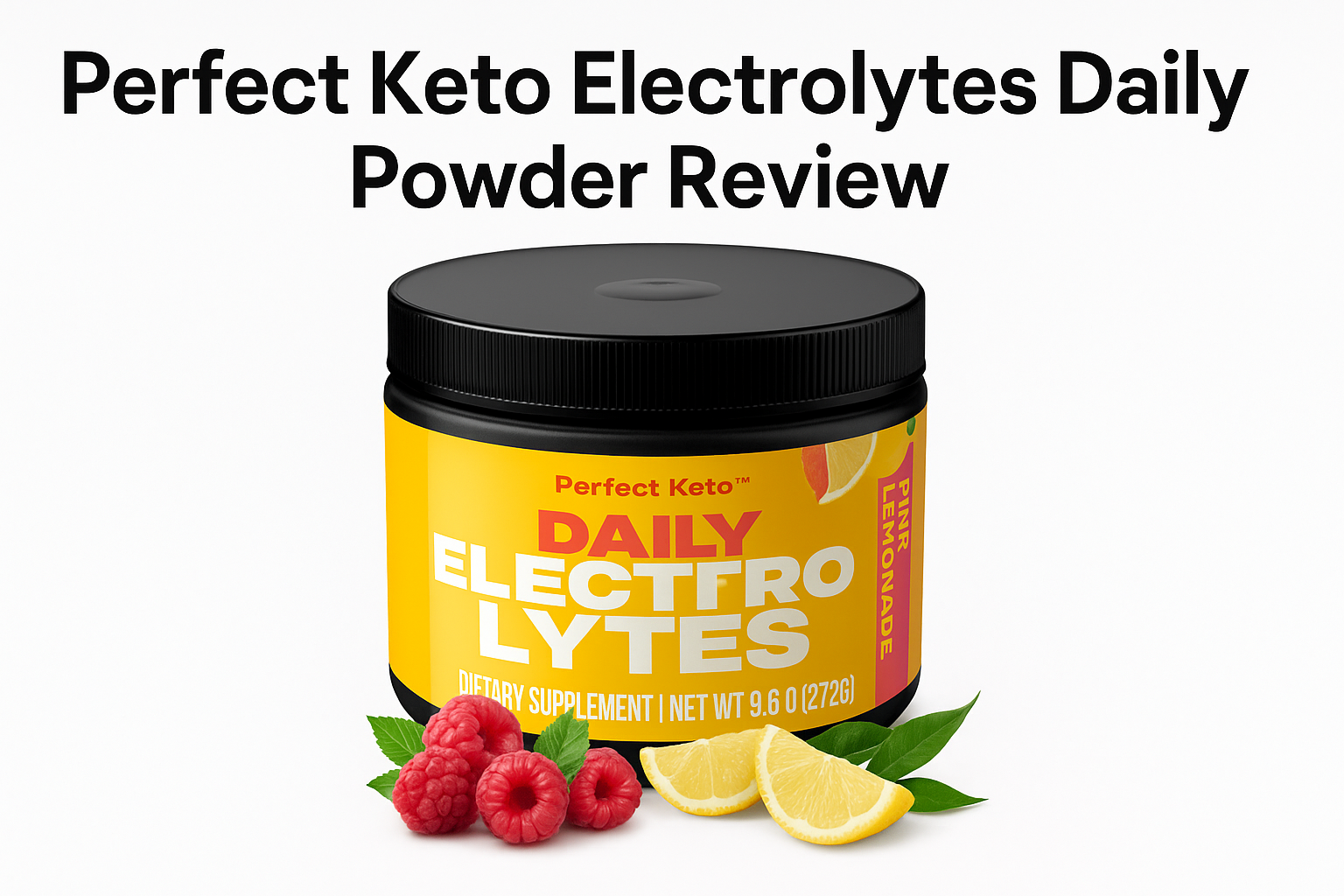Introduction
Switching to a ketogenic diet was a game-changer for me, but I quickly learned that staying hydrated and maintaining electrolyte balance was just as important as keeping my carbs low. I remember experiencing headaches, muscle cramps, and fatigue—classic signs of an electrolyte imbalance—before I figured out how crucial supplementation is on keto.
Through trial and error, I’ve tested different electrolyte powders and strategies to find what truly works. In this guide, I’ll share my personal experience, favorite products, and key insights to help you choose the best keto electrolyte powder for your needs—so you can avoid the dreaded “keto flu” and stay energized.
One of the top products I’ve come to rely on is the Perfect Keto Electrolytes Powder. It’s clean, easy on the stomach, and contains all the essential electrolytes in just the right balance—making it a staple in my daily routine, especially during the hotter months or after a tough workout.
This article contains affiliate links, meaning I may earn a commission if you purchase through the links provided, at no extra cost to you. I only recommend products I trust and personally use to support my keto lifestyle.
Understanding Electrolytes on Keto
When you switch to a ketogenic diet, your body undergoes several metabolic changes. One of the most significant is a reduction in insulin levels, which affects how your kidneys process electrolytes.
This shift can lead to increased excretion of sodium and water, potentially throwing your entire electrolyte balance off-kilter.
The primary electrolytes you need to focus on while following a ketogenic diet are:
- Sodium
- Potassium
- Magnesium
- Calcium
Each of these minerals plays a vital role in maintaining proper hydration, muscle function, and overall well-being. A high-quality keto electrolyte powder should contain a balanced blend of these minerals to support your body’s needs during ketosis.
The Science Behind Electrolyte Supplementation on Keto
Research has consistently shown that proper electrolyte supplementation can significantly improve the keto adaptation process. A study published in the journal Nutrients found that sodium and potassium supplementation enhanced exercise performance in endurance athletes following a ketogenic diet.
This highlights the importance of electrolyte balance not just for general health, and for athletic performance on keto.
A 2020 study in the International Journal of Environmental Research and Public Health showed that getting enough electrolytes can help reduce many of the negative effects people feel when they first start a ketogenic diet, often called the “keto flu.” the critical role that electrolytes play in supporting a successful transition to and maintenance of a ketogenic lifestyle.
Choosing the Best Keto Electrolyte Powder
When selecting an electrolyte powder, there are several factors to consider:
Electrolyte Profile
Look for a powder that provides a comprehensive blend of sodium, potassium, magnesium, and calcium. The ideal ratios may vary based on person needs, but a good starting point is:
- Sodium: 1000-2000mg
- Potassium: 200-1000mg
- Magnesium: 100-300mg
- Calcium: 50-150mg
Sweeteners and Additives
Opt for powders that use keto-friendly sweeteners like stevia or monk fruit extract. Avoid products with added sugars or artificial sweeteners that may impact ketosis or gut health.
Some people prefer unflavored options to have more control over the taste and to avoid any potential issues with sweeteners.
Bioavailability
The form of electrolytes used in the powder can significantly impact how well your body absorbs them. For example, magnesium citrate is generally more bioavailable than magnesium oxide.
Look for products that use easily absorbed forms of electrolytes to confirm you’re getting the most benefit from your supplement.
Taste and Mixability
A powder that tastes delicious and mixes well with water will be easier to consume consistently. Some brands offer unflavored options if you prefer to add the powder to other beverages or if you’re sensitive to certain flavors.
Top Keto Electrolyte Powders on the Market
Based on my experience and extensive research, here are some of the best keto electrolyte powders available:
- Perfect Keto Daily Electrolytes: This powder offers a balanced blend of all four key electrolytes and uses natural flavors and stevia for sweetness. It’s free from artificial ingredients and mixes easily with water.
>>> Read the full review of Perfect Keto Daily Electrolytes HERE<<<
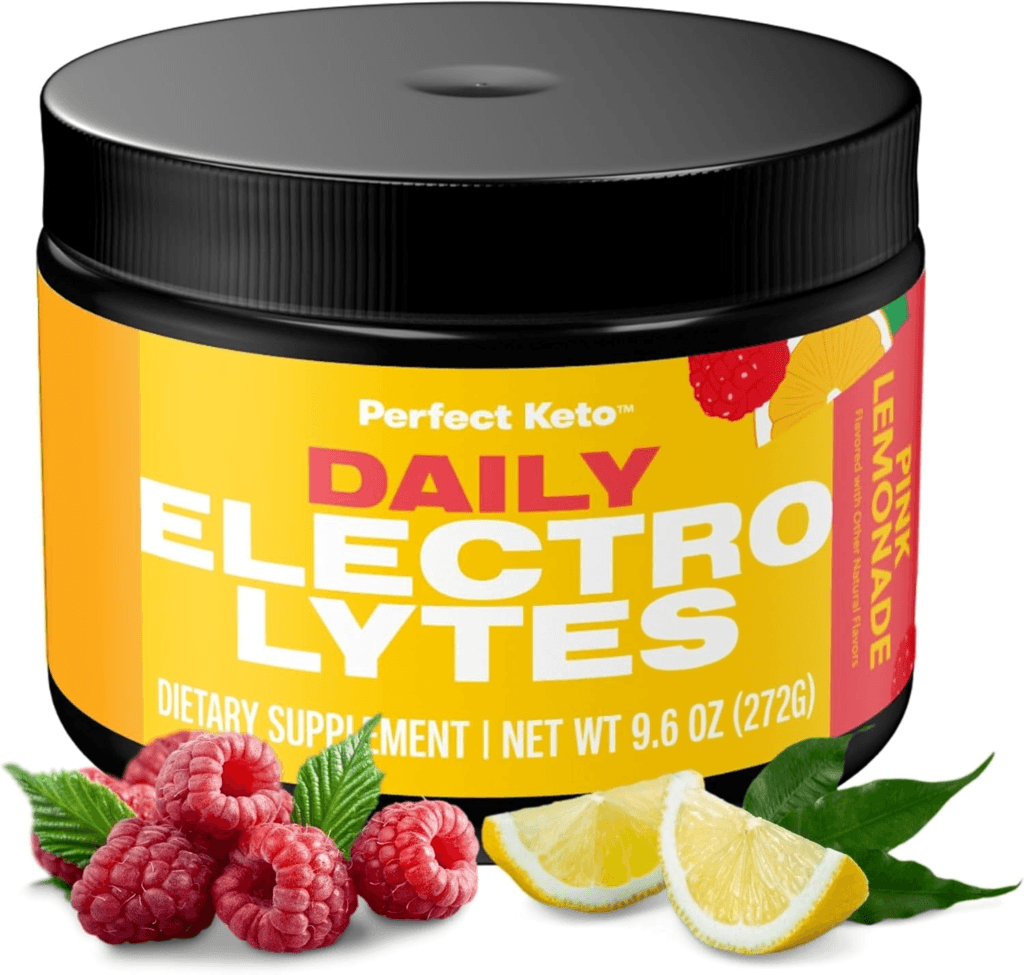
- LMNT Recharge Electrolyte Drink Mix: Known for its high sodium content, LMNT is popular among those who need extra salt in their diet. It comes in various flavors and has no added sugars.
>>> Read the full review of LMNT Recharge Electrolyte Drink Mix HERE<<<

- Ultima Replenisher Electrolyte Hydration Powder: This option is great for those who prefer a sweeter taste. It uses plant-based colors and flavors and includes trace minerals in addition to the main electrolytes.
>>> Read the full review of Ultima Replenisher Electrolyte Hydration Powder HERE<<<
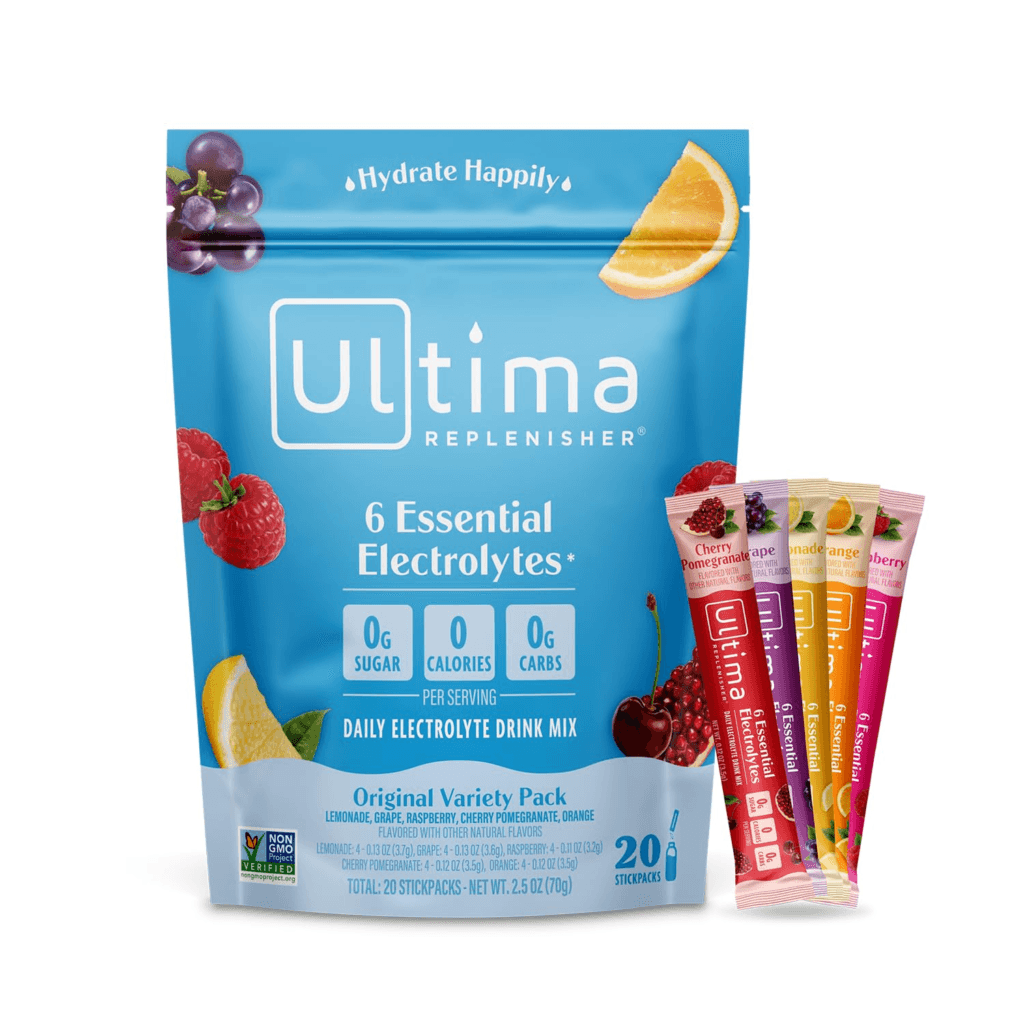
- Key Nutrients Electrolyte Powder: This powder stands out for its inclusion of extra nutrients like vitamin C. It’s available unflavored, making it versatile for mixing with different beverages. It’s also available flavored in many flavours.
>>> Read the full review of Key Nutrients Electrolyte Powder HERE<<<
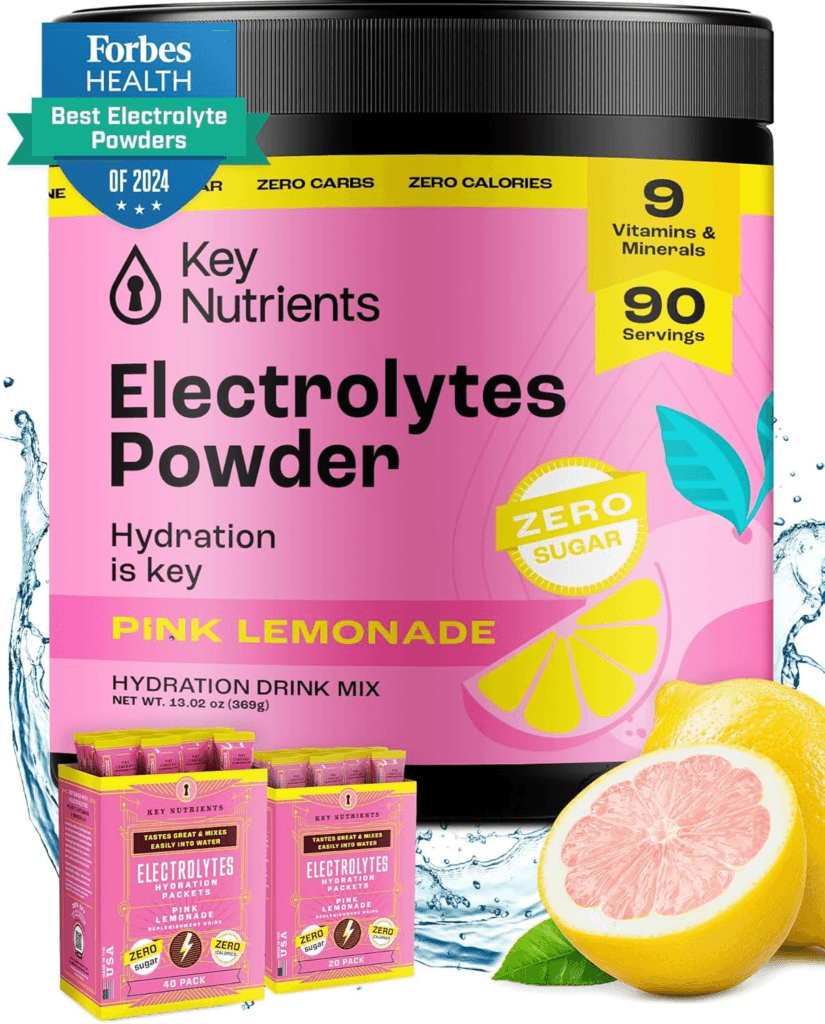
- Redmond Re-Lyte Electrolyte Mix: Made with real salt and containing a good balance of electrolytes, this powder is a solid choice for those looking for a clean, simple formula.
>>> Read the full review of Redmond Re-Lyte Electrolyte Mix HERE<<<

Keto Alternatives to Electrolyte Powders
If you prefer a liquid or tablet-based option instead of traditional electrolyte powders, these keto-friendly alternatives offer a convenient and effective way to maintain electrolyte balance.
- Keto Chow Electrolyte Drops: A highly concentrated, no-sugar, no-sweetener option, Keto Chow Electrolyte Drops provide an easy-to-use liquid format. Perfect for those who prefer to control their intake and mix it into their drinks.
>>> Read the full review of Keto Chow Electrolyte Drops HERE<<<
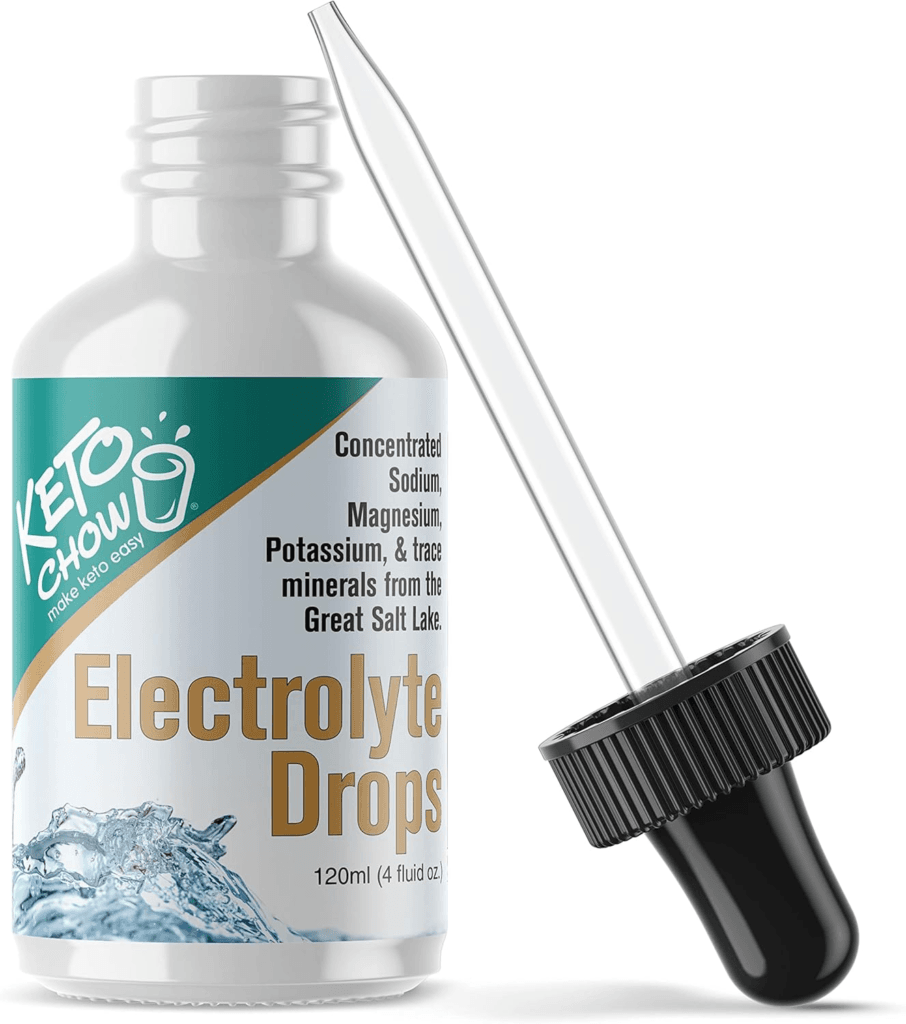
- Nuun Sport Electrolyte Tablets: A convenient tablet-based electrolyte option, Nuun Sport Electrolyte Tablets dissolve easily in water and provide a balanced blend of sodium, potassium, and magnesium. They are great for athletes and those on the go.
>>> Read the full review of Nuun Sport Electrolyte Tablets HERE<<<
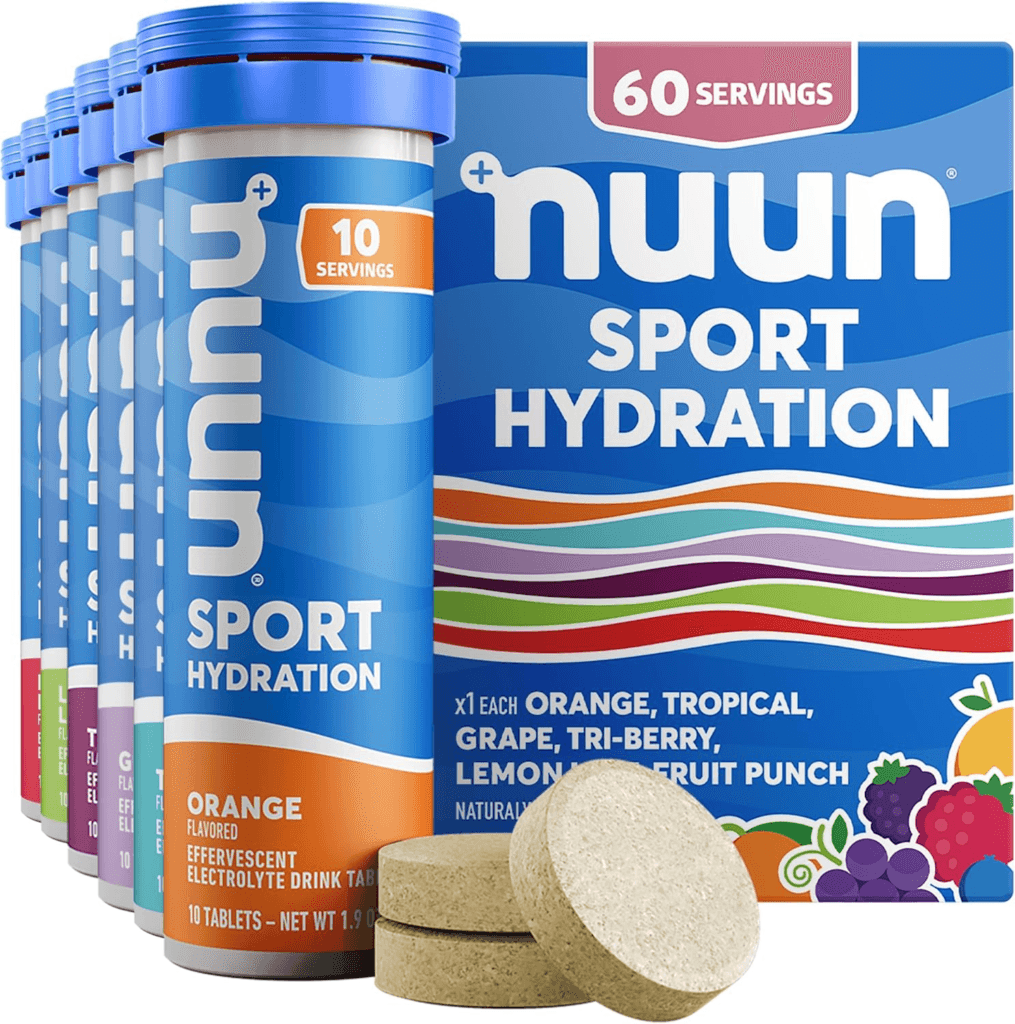
Implementing Electrolyte Supplementation in Your Keto Routine
Start by assessing your current electrolyte intake from food sources. Many keto-friendly foods like avocados, nuts, and leafy greens provide some electrolytes, but supplementation is often necessary to meet increased needs.
Begin with the recommended dosage on your chosen electrolyte powder and adjust based on your symptoms and activity level. It’s often helpful to divide your intake throughout the day as opposed to consuming it all at once.
Pro Tip: Keep a journal to track your electrolyte intake and any symptoms you experience. This can help you fine-tune your supplementation strategy over time.
Common Pitfalls and How to Avoid Them
One of the biggest mistakes keto dieters make is underestimating their electrolyte needs. Symptoms like fatigue, headaches, and muscle cramps are often signs of electrolyte imbalance rather than carb withdrawal.
Another common issue is overconsumption of sodium without balancing other electrolytes. While sodium is crucial on keto, it’s important to maintain proper ratios with potassium and magnesium to avoid further imbalances.
Adapting Electrolyte Intake for Different Scenarios
Your electrolyte needs may vary based on factors like climate, activity level, and person physiology. Athletes and those living in hot climates may need higher doses, especially of sodium and potassium.
During periods of fasting or intense exercise, you may need to increase your electrolyte intake to compensate for increased losses through sweat and urine. Pay close attention to how your body feels and adjust accordingly.
Advanced Electrolyte Strategies for Keto Masters
As you become more attuned to your body’s needs on keto, you can start to experiment with more advanced electrolyte strategies. This might include:
- Timing electrolyte intake around workouts for improved performance.
- Using specific electrolyte ratios to support fasting protocols.
- Incorporating trace minerals like zinc and selenium for extra health benefits.
Practical Exercises to Optimize Your Electrolyte Balance
- Conduct a 3-day electrolyte audit: Track all food and supplement sources of electrolytes to identify potential gaps in your intake.
- Experiment with pre-workout electrolyte timing: Try consuming your electrolyte powder 30 minutes before exercise and note any changes in performance or recovery.
- Test different flavors and mixtures: Create your own electrolyte blends by combining unflavored powder with natural flavorings like lemon juice or herbal teas.
- Monitor your hydration status: Use urine color as a guide to confirm you’re maintaining proper hydration alongside electrolyte supplementation.
DIY Keto Electrolyte Solutions
For those who prefer a more hands-on approach or want to save money, creating your own electrolyte solution is a viable option. Here’s a basic recipe you can customize to your needs:
- 1/4 tsp salt (sodium)
- 1/4 tsp salt substitute (potassium)
- 1/4 tsp food-grade Epsom salt (magnesium)
- 1 liter of water
- Optional: lemon juice or sugar-free flavoring to taste
Mix all ingredients thoroughly and sip throughout the day. Adjust the quantities based on your person needs and preferences.
The Role of Electrolytes in Keto-Adaptation
Electrolyte balance plays a crucial role in the process of keto-adaptation, which is the period when your body transitions from using glucose as its primary fuel source to using ketones. During this time, proper electrolyte supplementation can help reduce many of the symptoms associated with the “keto flu,” such as:
- Headaches
- Fatigue
- Muscle cramps
- Dizziness
- Irritability
By maintaining optimal electrolyte levels, you can smooth out this transition period and reach a state of stable ketosis more comfortably.
Electrolytes and Athletic Performance on Keto
For athletes following a ketogenic diet, electrolyte management becomes even more critical. The combination of increased electrolyte loss through sweat and the already heightened needs because of the diet can create a perfect storm for deficiencies if not properly addressed.
Studies have shown that proper electrolyte supplementation can:
- Improve endurance performance.
- Reduce muscle cramping.
- Enhance recovery times.
- Maintain proper hydration status during prolonged exercise.
If you’re an athlete on keto, consider working with a sports nutritionist to develop a personalized electrolyte strategy that takes into account your specific training regimen and physiological needs.
Long-Term Health Considerations of Electrolyte Supplementation
While electrolyte supplementation is generally safe and useful for those on a ketogenic diet, it’s important to consider the long-term implications of altering your mineral intake. Regular blood tests to watch electrolyte levels can help confirm you’re not over-supplementing, which can lead to its own set of health issues.
Additionally, if you have any pre-existing health conditions, particularly those related to kidney function or heart health, it’s crucial to ask with a healthcare provider before significantly increasing your electrolyte intake.
The Future of Keto Electrolyte Supplementation
As the popularity of the ketogenic diet continues to grow, we’re likely to see more research and innovation in the field of electrolyte supplementation. Some emerging trends to watch for include:
- Personalized electrolyte formulations based on genetic testing.
- Integration of electrolyte monitoring with wearable technology.
- Development of more bioavailable forms of electrolytes.
- Incorporation of adaptogens and other functional ingredients into electrolyte powders.
Staying informed about these developments can help you continually improve your approach to electrolyte supplementation on keto.
Frequently Asked Questions
What are electrolytes and why are they important on keto?
Electrolytes are minerals in your blood and other bodily fluids that carry an electric charge. They are crucial for maintaining proper hydration, muscle function, and nerve signaling.
On a ketogenic diet, the body tends to excrete more electrolytes, making supplementation often necessary to maintain balance.
How do I know if I need to supplement with electrolytes?
Common signs of electrolyte imbalance include headaches, fatigue, muscle cramps, dizziness, and irregular heartbeat. If you experience these symptoms, especially when starting a keto diet, you may benefit from electrolyte supplementation.
Can I get enough electrolytes from food alone on keto?
While it’s possible to get electrolytes from keto-friendly foods like avocados, nuts, and leafy greens, many people find it challenging to meet their increased needs through diet alone, especially in the early stages of keto adaptation.
How much sodium do I need on a ketogenic diet?
Sodium needs can vary, but many keto experts recommend consuming 3,000-5,000 mg of sodium per day. This is significantly higher than the general population recommendations because of increased sodium excretion on keto.
Are there any risks to taking electrolyte supplements?
For most healthy people, electrolyte supplements are safe when taken as directed. However, those with kidney problems, heart conditions, or on certain medications should ask a healthcare provider before starting any new supplement regimen.
Can electrolyte imbalance affect ketosis?
Yes, electrolyte imbalances can impact your body’s ability to maintain ketosis. Proper electrolyte balance supports the metabolic processes necessary for ketone production and utilization.
How often should I take electrolyte supplements on keto?
The frequency of electrolyte supplementation can vary based on person needs. Some people find it useful to take small amounts throughout the day, while others prefer larger doses once or twice daily. Experiment to find what works best for you.
Can electrolyte supplements help with keto flu symptoms?
Yes, many people find that proper electrolyte supplementation can significantly reduce or even eliminate symptoms of the “keto flu,” which often occur during the initial adaptation to a ketogenic diet.
Is it possible to overdose on electrolytes?
While rare, it is possible to consume too many electrolytes, which can lead to health issues. Always follow the recommended dosages and ask with a healthcare provider if you have concerns about your intake.
How do electrolyte needs change with exercise on keto?
Exercise, especially in hot conditions or for prolonged periods, increases electrolyte loss through sweat. Athletes on a ketogenic diet may need to increase their electrolyte intake to compensate for these losses and support performance.
Key Takeaways
- Proper electrolyte balance is crucial for success on a ketogenic diet.
- Look for a comprehensive electrolyte powder with balanced ratios of sodium, potassium, magnesium, and calcium.
- Adjust your intake based on person needs, activity level, and climate.
- Track symptoms and experiment with timing to improve your electrolyte strategy.
- Don’t underestimate the impact of proper electrolyte supplementation on your overall keto experience.
